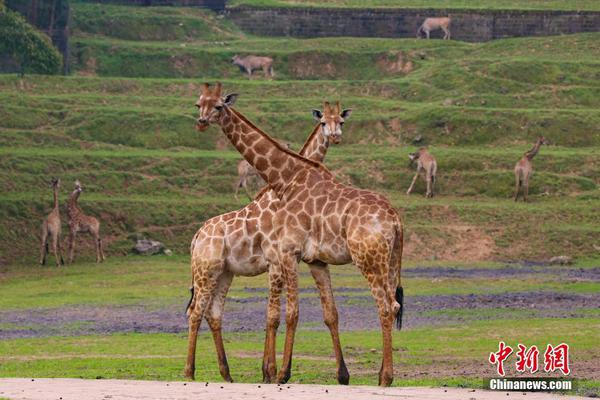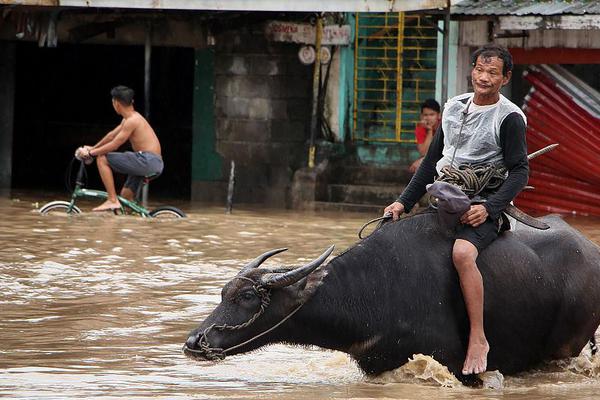Massive ivory tusks from legally hunted African elephants023 Archivesonce again be brought into the United States.
Although the Obama administration banned the importation of African elephant trophies in 2014, on Wednesday the U.S. Fish and Wildlife Service confirmed with ABC Newsthat the ban had been lifted for Zimbabwe and Zambia, two nations with sizable elephant populations.
The decision to allow these ivory hunting prizes into the U.S. stokes much controversy. Safari big-game hunters, who engage in legal hunting of these animals, feel they should be able to keep the spoils of their sport. But conservationists, such as The Elephant Project, view this as a "pay to slay" tactic that will encourage more poaching of an intelligent, vulnerable species.
SEE ALSO: Three Connecticut elephants were just given lawyers, and the case sways on free willReprehensible behaviour by the Trump Admin. 100 elephants a day are already killed. This will lead to more poaching. https://t.co/rld67eM018
— The Elephant Project (@theelephantproj) November 16, 2017
African elephants — the planet's largest land mammals — are listed as threatened under the Endangered Species Act, which is managed by the Fish and Wildlife Service. The animals have been listed with that status since 1978.
According to the Great Elephant Census, undertaken by a team of ecologists and biologists who spent years surveying the expansive African savannah in airplanes, the population of African elephants decreased by 30 percent in 15 of 18 countries studied between 2009 and 2016, which include both Zambia and Zimbabwe.
African elephant populations have been particularly pressured by poaching for their ivory tusks, a demand that is only increasing. Since 2007, the ivory trade has doubled, according to the International Union for the Conservation of Nature (IUCN).
The Fish and Wildlife Service did not say what specific conditions had changed in Zimbabwe and Zambia to justify lifting the ban, but it did say more information about the decision would be posted in the Federal Register on Friday (the Federal Register is where the U.S. government officially publishes federal regulations).
A Fish and Wildlife spokesperson, however, stated the agency's general belief that legal sport-hunting can benefit conservation goals:
Legal, well-regulated sport hunting as part of a sound management program can benefit the conservation of certain species by providing incentives to local communities to conserve the species and by putting much-needed revenue back into conservation.
This latest decision, although limited to one species in two African nations, might signal the Trump administration's intent to increasingly use regulated sport hunting as an international wildlife conservation strategy.
Last week, the Department of the Interior — which oversees the Fish and Wildlife Service — announced the creation of the International Wildlife Conservation Council. The council will specifically "focus on increased public awareness domestically regarding conservation, wildlife law enforcement, and economic benefits that result from U.S. citizens traveling abroad to hunt," according to the announcement.
“Built on the backs of hunters and anglers, the American conservation model proves to be the example for all nations to follow for wildlife and habitat conservation,” Interior Secretary Ryan Zinke said.
Although the Endangered Species Act, one of the nation's most powerful conservation laws, has absolutely benefited once nearly extinct creatures like the Bald Eagle, 1,390 U.S. animals remain on the list as either threatened or endangered.
 Elon Musk reveals the first passenger SpaceX will send around the moon
Elon Musk reveals the first passenger SpaceX will send around the moon
 HBO Max announces a lower
HBO Max announces a lower
 'Paul Ryan magazine' is a 192
'Paul Ryan magazine' is a 192
 Painful sex and mental health have a surprising relationship
Painful sex and mental health have a surprising relationship
 Best Garmin deal: Save $50 on the Venu 3S at Best Buy
Best Garmin deal: Save $50 on the Venu 3S at Best Buy
 SXSW beat the pandemic by building Austin in VR for festival attendees
SXSW beat the pandemic by building Austin in VR for festival attendees
 A complete ranking of all 8 'Leprechaun' horror movies
A complete ranking of all 8 'Leprechaun' horror movies
 #AlertTheDayCare meme mocks Trump's Twitter tantrum
#AlertTheDayCare meme mocks Trump's Twitter tantrum
 Apple is actively looking at AI search for Safari
Apple is actively looking at AI search for Safari
 5 chore apps that might get your kids to clean their room already
5 chore apps that might get your kids to clean their room already
 Best Samsung deal: Save $60 on 64GB Samsung Galaxy Tab A9
Best Samsung deal: Save $60 on 64GB Samsung Galaxy Tab A9
 How to watch the March Madness NCAA Tournament 2021 without cable
How to watch the March Madness NCAA Tournament 2021 without cable
 Chrissy Teigen accidentally showed her nipple on Snapchat and handled it like a champ
Chrissy Teigen accidentally showed her nipple on Snapchat and handled it like a champ
 A complete ranking of all 8 'Leprechaun' horror movies
A complete ranking of all 8 'Leprechaun' horror movies
 Grim video of a starving polar bear could show the species' future
Grim video of a starving polar bear could show the species' future
 How to volunteer your time to help people get vaccinated
How to volunteer your time to help people get vaccinated
 Facebook is building an Instagram for kids under 13
Facebook is building an Instagram for kids under 13
 NASA's completed Artemis 1 rocket test could be a greenlight to the moon
NASA's completed Artemis 1 rocket test could be a greenlight to the moon
 Panthers vs. Sharks 2025 livestream: Watch NRL for free
Panthers vs. Sharks 2025 livestream: Watch NRL for free
 Inside the fight to close the Spanish
Inside the fight to close the Spanish
Philip Roth, 1933–2018Seeing Beyond the Tip of Your NoseTom Wolfe, StraightCooking With Pather PanchaliThe Child Thing: An Interview with Sheila Heti by Claudia DeyEndless Summer WellsScheele’s Green, the Color of Fake Foliage and DeathHelen DeWitt Lacerates the Literary WorldTom Wolfe, 1930–2018The Life and Times of the Literary Agent Georges BorchardtWill There Ever Be Another Writer Like Philip Roth?Redux: Reading About Mom by The Paris ReviewGertrude Stein's Mutual Portraiture SocietyMuriel Rukeyser, Mother of Everyone by Sam HuberListening to Harold Bloom’s Laugh and DeLillo’s Bronx AccentA Siren in a Paper Sleeve by Christopher KingThe Bad Sex in Fiction Award 2012: Shortlist by Sadie SteinWill There Ever Be Another Writer Like Philip Roth?Selected Sentences from Mark Twain’s Life on the Mississippi by Anthony Madrid“Once Upon a Time” and Other Formulaic Folktale Flourishes How to split screen on Chromebook Kevin Killian’s Memoirs of Sexed ChatGPT's 'make it more' is a new trend that takes images to their absolute limit Best music streaming deal: Get a free 3 Amazon Cyber Monday TV deals 2023: Fire TVs, cheap QLED TVs, and more Spotify parts ways with Prince Harry and Meghan Markle The Epistolary Friendship of Guy Davenport and Hugh Kenner Best Cyber Monday Roomba deals 2023 Limited edition rainbow dildo for Pride Redux: The Shopping Mall of Loss by The Paris Review iPhone trick lets you say 'Next' to scroll through TikTok hands GTA 6 release date may be closer than you thought — preorders reportedly launch soon Political Fiction: Unraveling America at a West Wing Fan Convention The Moral of the Story by Anthony Madrid A True Utopia: An Interview With N. K. Jemisin by Abigail Bereola The Legibility of Fausto Reinaga by Mark Goodale No One Has a Monopoly on Death Rethinking Schiele by Cody Delistraty The Endurance of ‘A Christmas Carol’ 8 BookTok recommendations you have to read in 2023
3.2977s , 10136.28125 kb
Copyright © 2025 Powered by 【2023 Archives】,Fresh Information Network